Azerbaijan at the UN: consistent position, steadfast course A brief historical review
The 80th session of the UN General Assembly continues in New York. As the organisation’s website emphasises, in the face of global crises, including wars, the High-Level Week is taking place at a vital moment for humanity, when the international community has the opportunity to rethink its shared future.
In other words, this session is becoming a platform for discussing the most pressing issues of our time. Therefore, we can be certain that the upcoming speech of President Ilham Aliyev will be a programmatic one, addressing not only regional but also global challenges. This conclusion is confirmed by the history of speeches delivered at UNGA sessions by both National Leader Heydar Aliyev and the incumbent president.
A brief look into relatively recent history shows how clearly, convincingly, and competently official Baku has used this platform to defend Azerbaijan’s interests and assess global processes. That is why there is no doubt that President Ilham Aliyev’s upcoming address will be of significant importance.
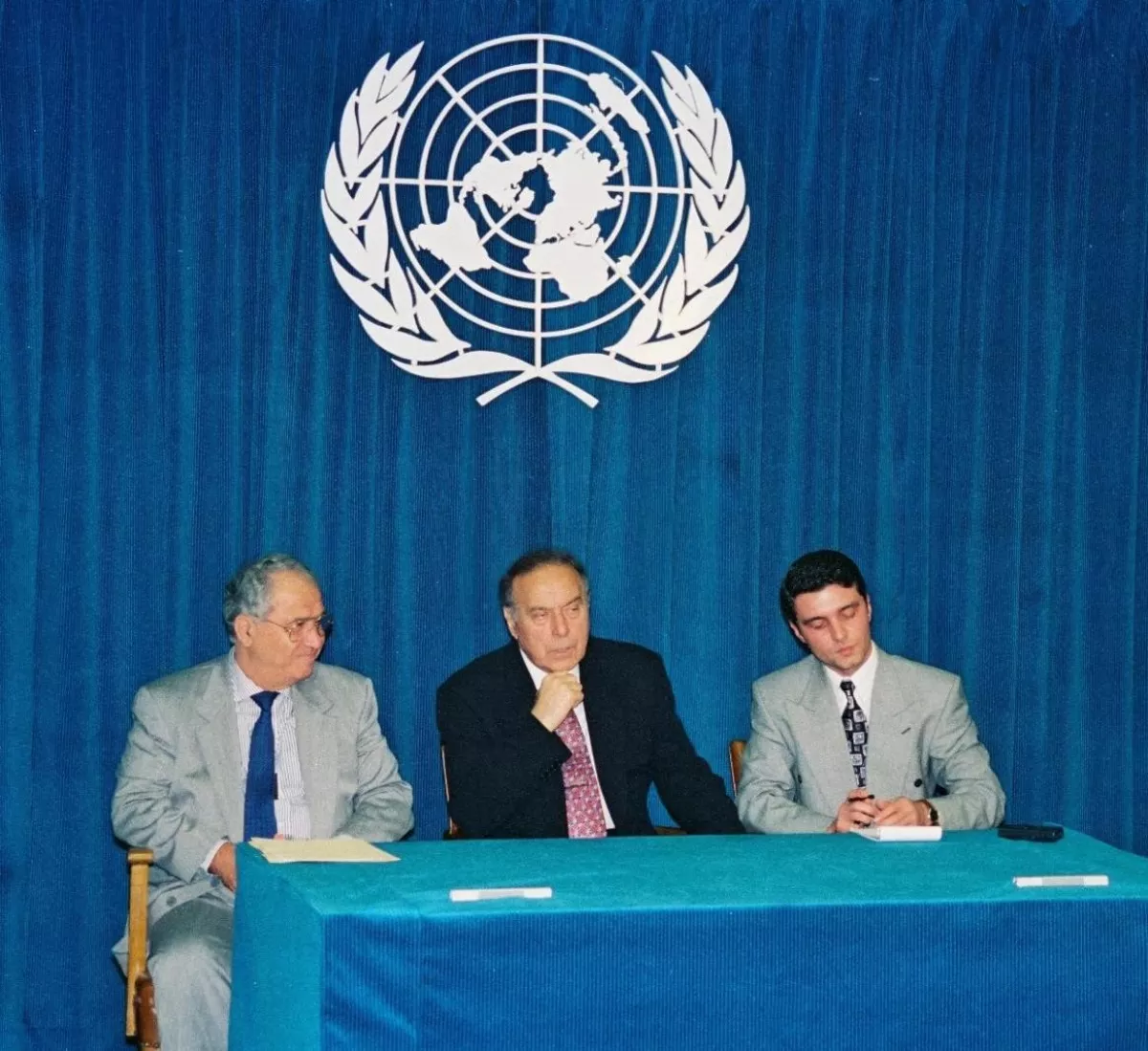
September 1994, the 49th session of the UN General Assembly. Heydar Aliyev noted that, situated at an important geopolitical crossroads between Europe and Asia, endowed with vast natural resources, and relying on the firm will and faith of the Azerbaijani people, the country was pursuing a strategic course aimed at strengthening its independence. In this regard, he stated: “We look to the future of our country with optimism.”
At the same time, the National Leader stressed that aggressive nationalism and separatism were becoming a threat to universal peace and security. Armenia was openly pursuing a policy of annexation of Azerbaijani territories and the expulsion of the population from its native lands. However, the four resolutions adopted by the UN Security Council, which demanded the immediate and complete withdrawal of occupying forces, remained unimplemented.
Heydar Aliyev emphasised that the failure to enforce Security Council decisions undermines the authority of the United Nations itself and calls into question its ability to fulfil its main mission — maintaining international peace and security. He pointed out that what was happening was in clear contradiction to the norms of international law, since Baku’s demands for the liberation of occupied territories were entirely legitimate.
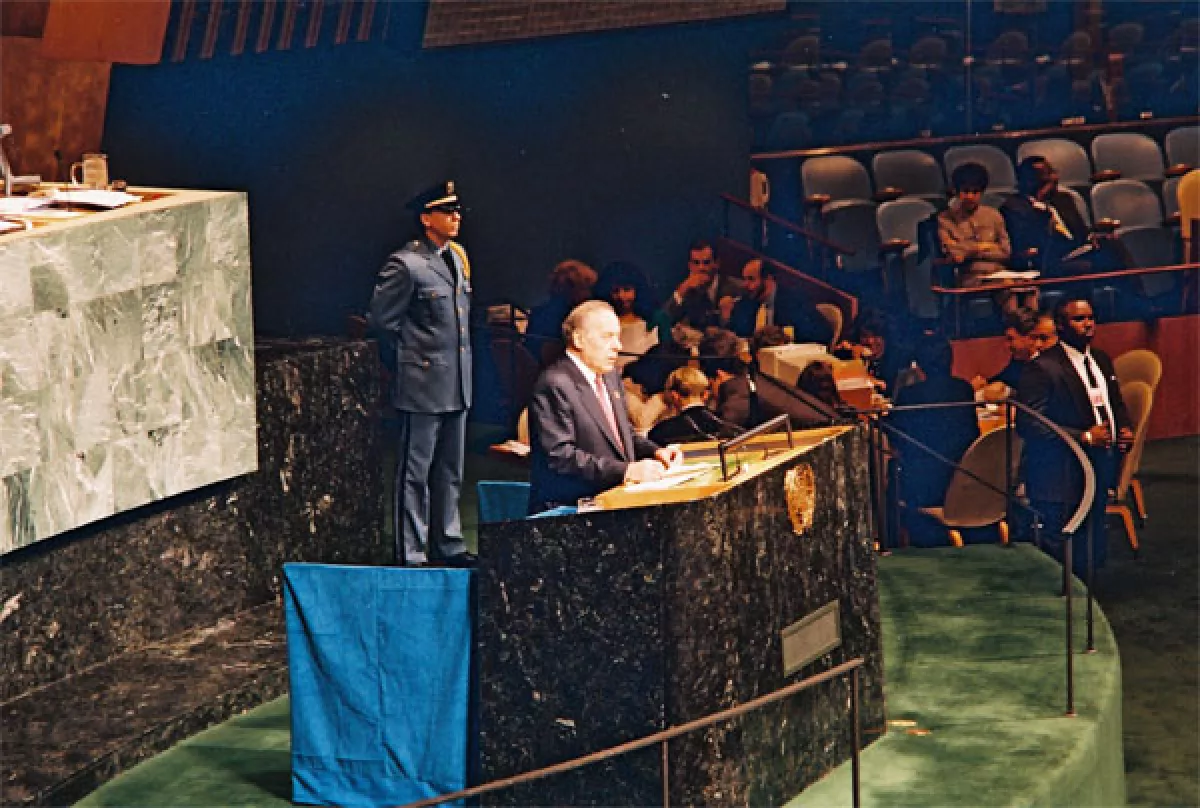
October 1995, the 50th session of the UN General Assembly. Heydar Aliyev, noting violations of international law, including in the context of separatism that had caused bloody wars in different regions, once again drew attention to the non-implementation of the four Security Council resolutions. “We want peace and reject any form of aggression in any corner of the planet,” he declared.
September 2003, the 58th session of the UN General Assembly. Ilham Aliyev, then Prime Minister of Azerbaijan, stressed that Armenia had been ignoring the Security Council resolutions for ten years, while the UN and the OSCE Minsk Group had failed to take adequate measures. According to him, the impunity of the aggressor undermines trust in the entire system of international security.
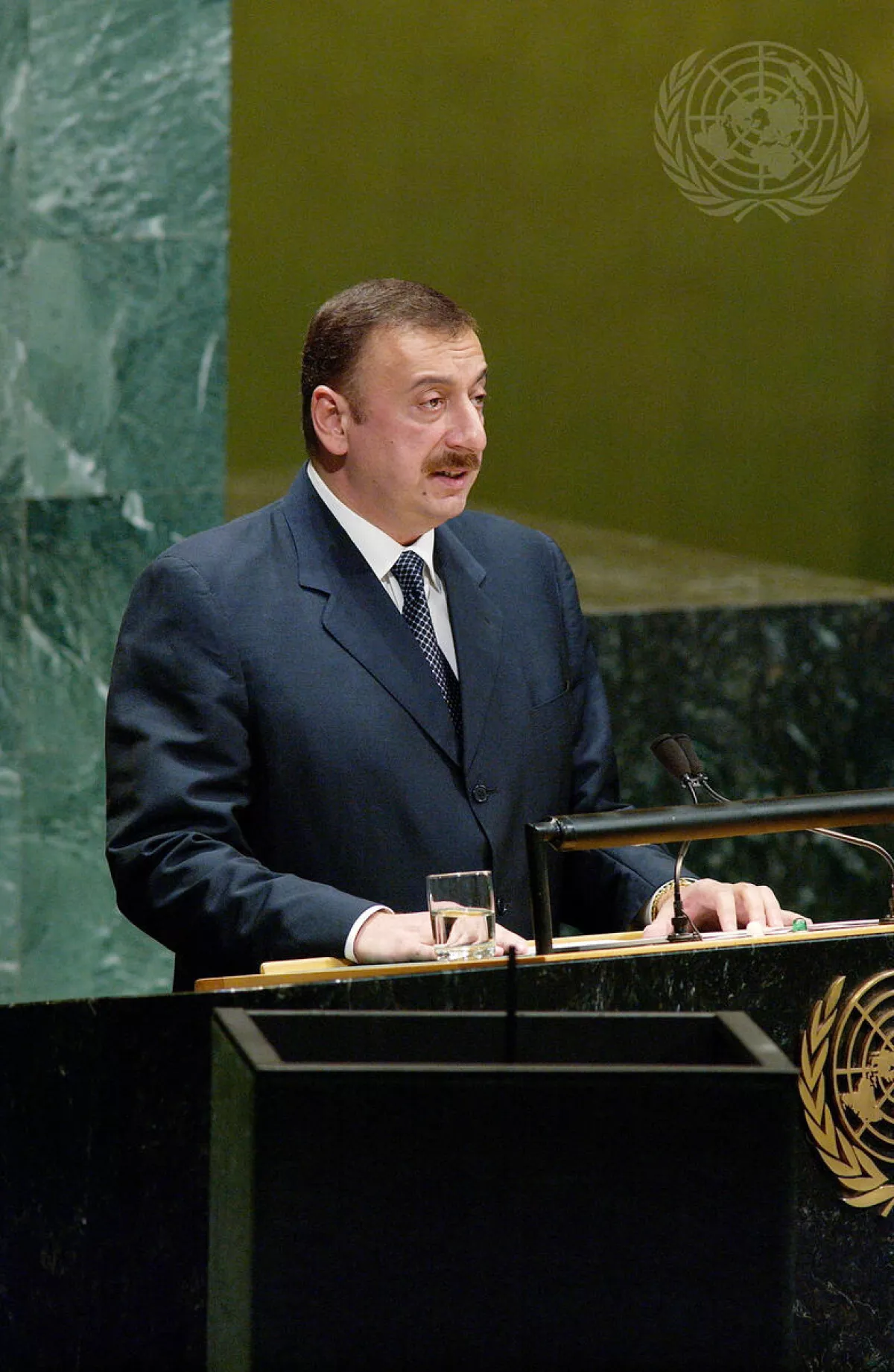
Baku, as Aliyev underlined, would never agree to a settlement based on the “existing realities” and would not yield a single inch of its land. At the same time, he noted that Azerbaijan, on its own initiative, was implementing large-scale transregional projects related to the development and export of Caspian hydrocarbon resources. These projects were opening new opportunities for the socio-economic development of countries along the East–West corridor. The president also stressed the importance of dialogue between civilisations and cultures as the foundation for confronting common threats.
October 2004, the 59th session of the UN General Assembly. President Ilham Aliyev pointed out that the UN Security Council’s silence over Armenia’s non-compliance with its resolutions, coupled with the passivity of the OSCE Minsk Group, had had a destructive effect on the settlement process and had encouraged the illegal resettlement of Armenians into the occupied territories.
He further stated that Azerbaijan would take all necessary measures to hold foreign companies accountable for their involvement in the plundering of natural resources in the occupied lands. In addition, Ilham Aliyev raised the “long overdue issue of UN reform,” highlighting the need for more transparent working methods within the Security Council.
The president underscored Azerbaijan’s geopolitical significance, drawing attention to transport network projects such as Europe–Caucasus–Asia, the Baku–Tbilisi–Ceyhan oil pipeline, and the Baku–Tbilisi–Erzurum gas pipeline. “Favourable conditions for the sustainable growth of states can only be achieved through adherence to the norms and principles of international law,” he emphasised.
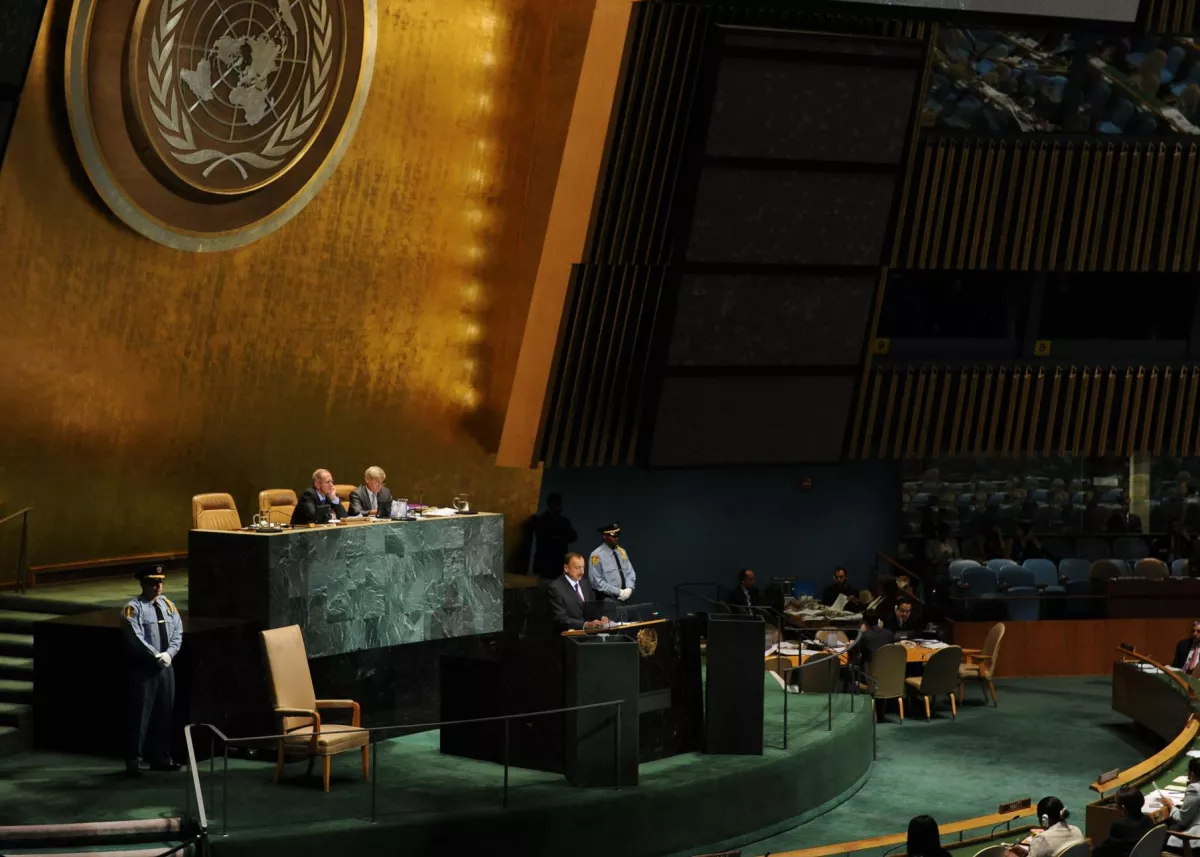
September 2010, the 65th session of the UN General Assembly. Ilham Aliyev once again pointed to the non-implementation of Security Council resolutions and documented Armenia’s destruction of cultural heritage in the occupied territories. At the same time, he presented data on Azerbaijan’s economic achievements and underlined the country’s contribution to the development of intercivilisational dialogue.
September 2017, the 72nd session of the UN General Assembly. The president noted that in some cases, Security Council resolutions are implemented within days, but in Azerbaijan’s case, the issue had remained unresolved for 24 years — a clear manifestation of double standards. Aliyev stressed that all provocations by Armenia would end in disastrous consequences for it.
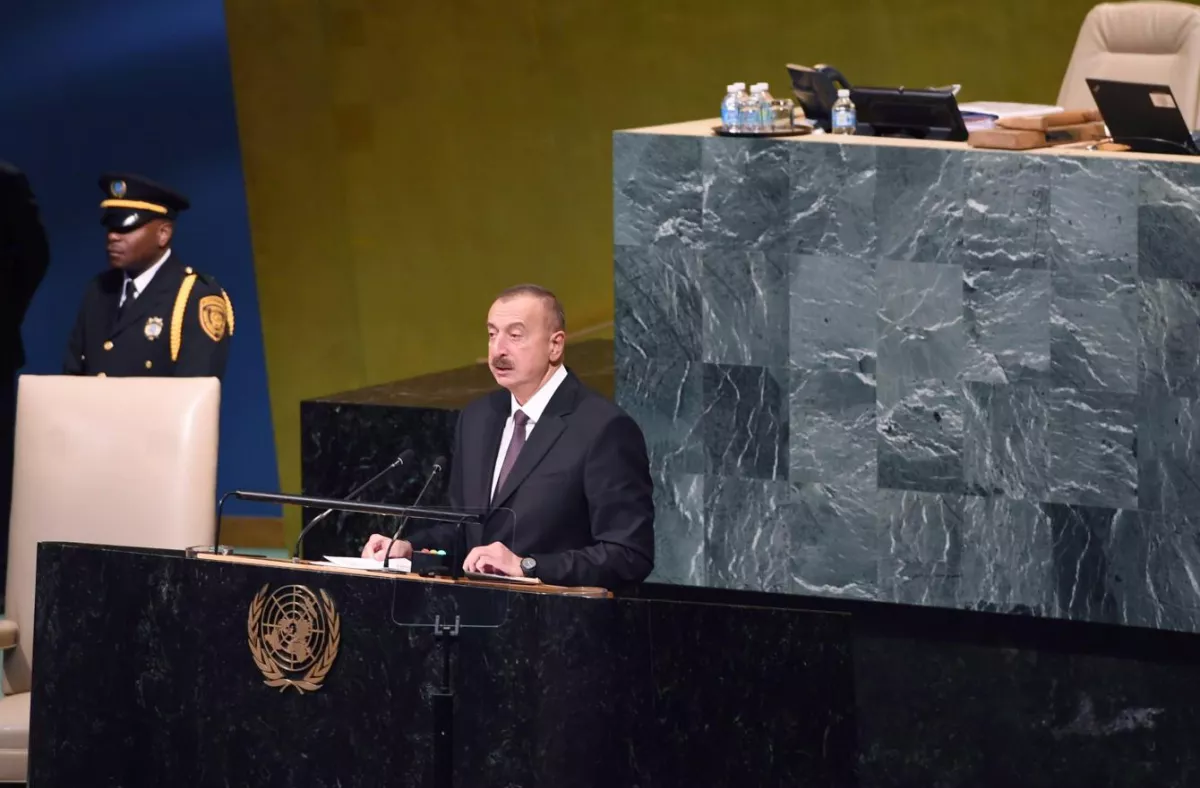
He also highlighted Azerbaijan’s rich ethno-cultural and religious diversity, describing multiculturalism as a national treasure. From a geopolitical standpoint, the head of state emphasised Azerbaijan’s role as a reliable energy supplier and a major transport hub.
September 2020, the 75th session of the UN General Assembly. President Ilham Aliyev spoke of Armenia’s illegal exploitation of natural resources in the occupied lands and underlined that the OSCE Minsk Group had failed to deliver results. He accused Armenia’s leadership of preparing for war against Azerbaijan, placing full responsibility for the escalation on Yerevan.
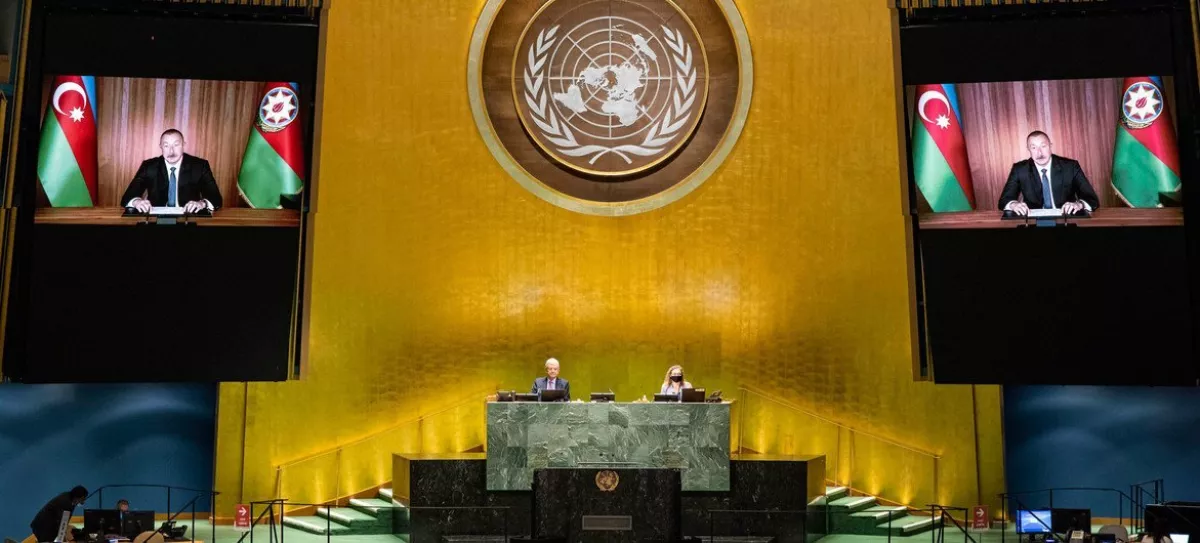
At the same time, Aliyev highlighted the country’s geostrategic achievements and its active participation in the East–West and North–South transport corridors, stressing that Azerbaijan had become an important transport and logistics hub of Eurasia.
September 2021, the 76th session of the UN General Assembly. The president noted Azerbaijan’s voluntary contribution of $10 million to the World Health Organization and the provision of humanitarian aid to more than 30 countries during the COVID-19 pandemic. He condemned “vaccine nationalism” and the deepening inequality in access to vaccines.
Aliyev stated that on September 27, 2020, Armenia launched a large-scale offensive against Azerbaijan, and the country, exercising its right to self-defence, carried out a counteroffensive operation. As a result, Azerbaijan restored justice and is now undertaking large-scale reconstruction of the liberated territories using its own resources.
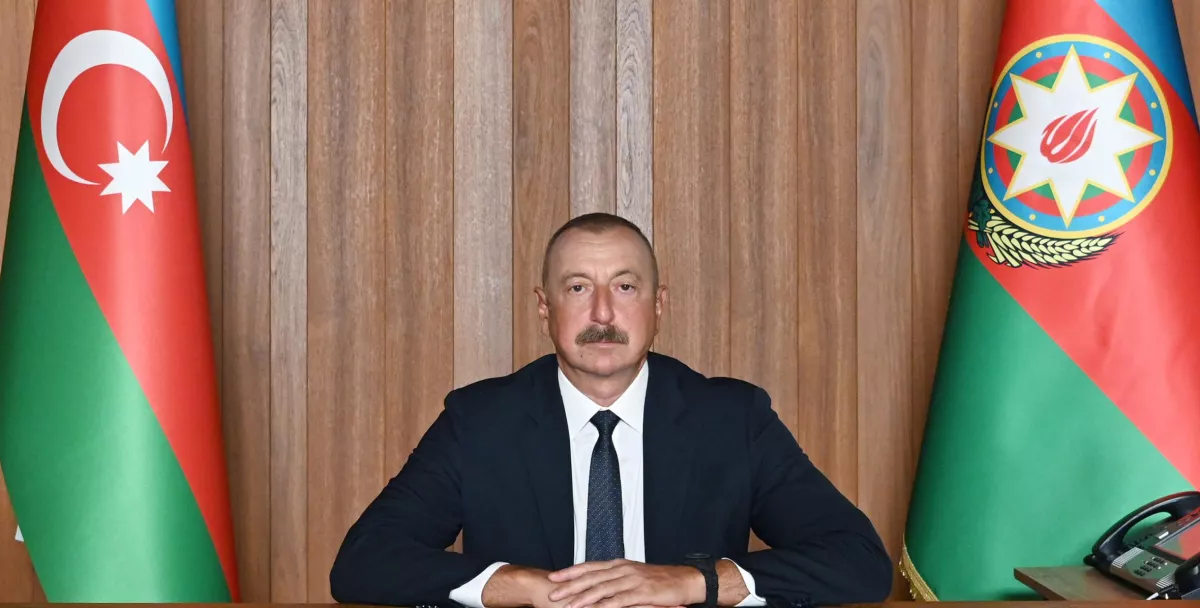
The president also reaffirmed his readiness for negotiations on a peace agreement based on five principles. “Azerbaijan has created a new reality in the Southern Caucasus region which has to be taken into account by all,” he emphasised.
Thus, since 1994, the leaders of Azerbaijan have consistently and convincingly used the platform of the UN General Assembly to convey to the international community vital information about the situation in the region and the country’s geopolitical role.
All the speeches were marked by clarity and sound reasoning, underscoring the legitimacy of the steps taken by Azerbaijan. This experience makes it clear that at the 80th session of the UN General Assembly, President Ilham Aliyev’s address will likewise be programmatic and targeted, carrying clear messages to various political forces.








